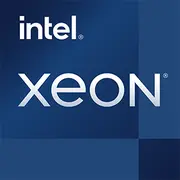Intel Xeon D-2775TE

The Intel Xeon D-2775TE processor is a powerful and efficient CPU designed for server platforms. Built on the 10 nm Ice Lake-D architecture, this processor packs an impressive 16 cores and 32 threads, making it well-equipped to handle demanding workloads and multitasking.
With a base frequency of 2 GHz and a max turbo frequency of 3.1 GHz, the Xeon D-2775TE offers excellent performance for compute-intensive tasks. The generous 25 MB of L3 cache further enhances its ability to handle large amounts of data efficiently.
Despite its high performance capabilities, the processor maintains a reasonable thermal design power (TDP) of 100 W, ensuring that it delivers exceptional performance without excessive power consumption.
Overall, the Intel Xeon D-2775TE is a top-of-the-line processor that is well-suited for server environments where powerful, multitasking capabilities are essential. Its combination of high core count, thread count, and cache size make it a reliable choice for heavy workloads and demanding applications. Whether it's for data centers, cloud computing, or high-performance computing, the Xeon D-2775TE is a solid choice for those seeking top-tier server performance.
Basic
Label Name
Intel
Platform
Server
Launch Date
February 2022
Model Name
?
The Intel processor number is just one of several factors - along with processor brand, system configurations, and system-level benchmarks - to be considered when choosing the right processor for your computing needs.
Xeon D-2775TE
Code Name
Ice Lake-D
Foundry
Intel
Generation
Xeon D(Ice Lake-D)
CPU Specifications
Total Cores
?
Cores is a hardware term that describes the number of independent central processing units in a single computing component (die or chip).
16
Total Threads
?
Where applicable, Intel® Hyper-Threading Technology is only available on Performance-cores.
32
Performance-core Base Frequency
2 GHz
Performance-core Max Turbo Frequency
?
Maximum P-core turbo frequency derived from Intel® Turbo Boost Technology.
3.1 GHz
L1 Cache
80 KB per core
L2 Cache
1.25 MB per core
L3 Cache
25 MB shared
Unlocked Multiplier
No
Multiplier
20.0
Bus Frequency
100 MHz
CPU Socket
?
The socket is the component that provides the mechanical and electrical connections between the processor and motherboard.
Intel BGA 2579
Technology
?
Lithography refers to the semiconductor technology used to manufacture an integrated circuit, and is reported in nanometer (nm), indicative of the size of features built on the semiconductor.
10 nm
TDP
100 W
PCIe Version
?
PCI Express is a high-speed serial computer expansion bus standard used for connecting high-speed components, replacing older standards such as AGP, PCI, and PCI-X. It has gone through multiple revisions and improvements since its initial release. PCIe 1.0 was first introduced in 2002, and in order to meet the growing demand for higher bandwidth, subsequent versions have been released over time.
4
Memory Specifications
Memory Type
?
Intel® processors come in four different types: Single Channel, Dual Channel, Triple Channel, and Flex Mode. Maximum supported memory speed may be lower when populating multiple DIMMs per channel on products that support multiple memory channels.
DDR4-2933
Memory Channels
?
The number of memory channels refers to the bandwidth operation for real world application.
4
ECC Memory Support
Yes
Miscellaneous
PCIe Lanes
32
Benchmarks
Geekbench 6
Single Core
Score
1523
Geekbench 6
Multi Core
Score
10151
Passmark CPU
Single Core
Score
2203
Passmark CPU
Multi Core
Score
27299
Compared to Other CPU
Geekbench 6 Single Core
Geekbench 6 Multi Core
Passmark CPU Single Core
Passmark CPU Multi Core
Share in social media
Or Link To Us
<a href="https://cputronic.com/en/cpu/intel-xeon-d-2775te" target="_blank">Intel Xeon D-2775TE</a>